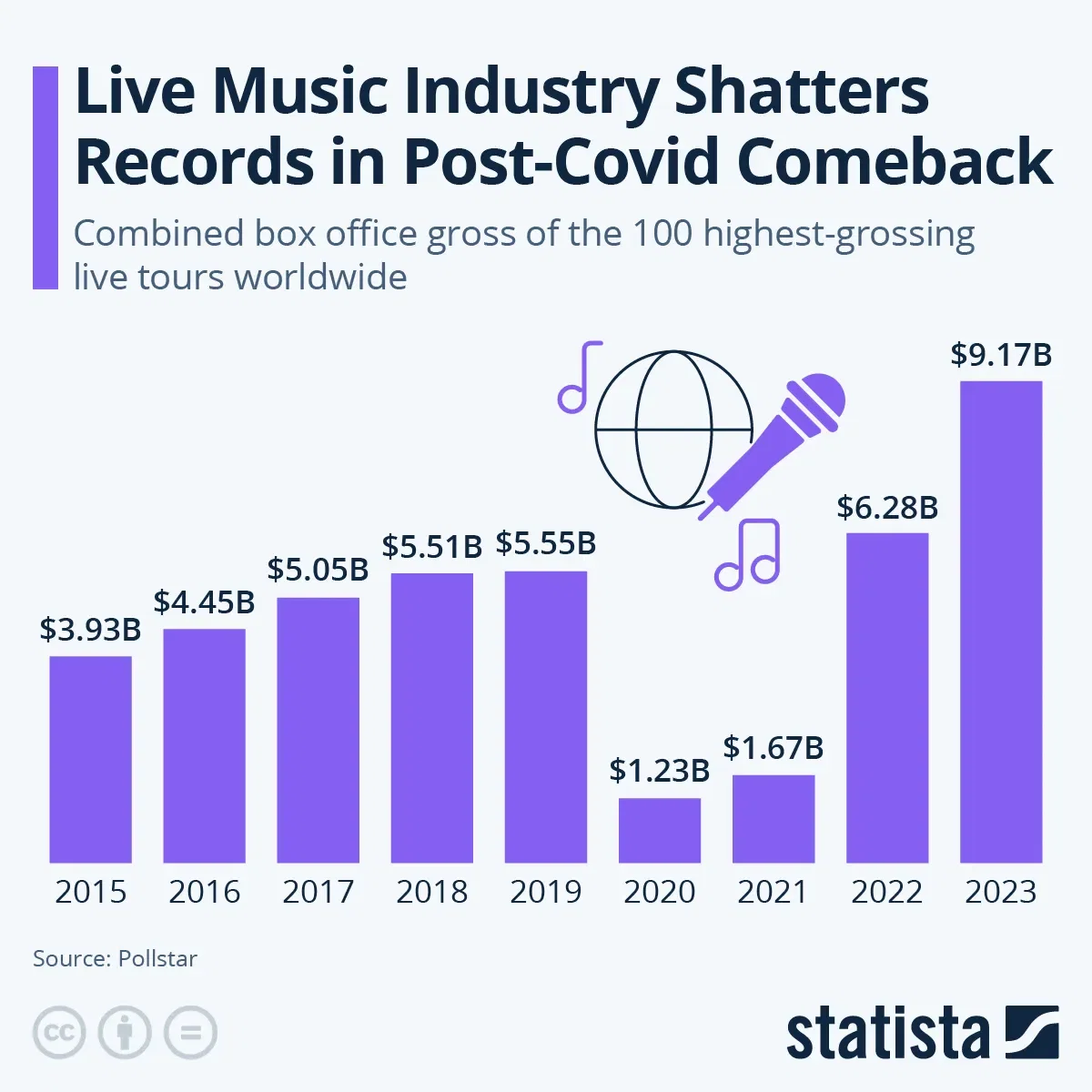Where Data Tells the Story
© Voronoi 2026. All rights reserved.

Three years after Covid-19 temporarily muted live music around the world, the industry shattered its previous record in 2023. According to Pollstar, a company that has tracked the live entertainment industry for decades, the 100 largest tours of 2023 grossed more than $9 billion, exceeding the previous record, set in 2022, by almost 50 percent. The historic result was achieved thanks to a combination of factors, as ticket sales were up 18 percent despite a 23 percent increase in average ticket prices. The main driver behind the live music boom were a couple of blockbuster tours, however, most notably Taylor Swift’s record-breaking “Era’s Tour” and Beyoncé’s “Renaissance Tour”, which together with Bruce Springsteen’s latest world tour accounted for more than 20 percent of the global top 100 gross.
Back in 2020, the Covid-19 pandemic had dealt a devastating blow to the concert industry, bringing live music to a screeching halt. Venues shuttered, tours were canceled and artists found themselves facing an uncertain future. For an industry that thrives on the energy of bringing people together – be it in packed arenas or intimate music clubs – the sudden silence was deafening. As the world adapted to new realities, so did the concert industry. Virtual concerts and livestream performances became a stopgap solution, offering a lifeline for both artists and fans craving connection. But while people soon found out that meetings could easily be held digitally, livestreamed concerts just couldn’t recreate the magic of the real thing, which at least partly explains how the industry surged back from the brink once restrictions were lifted and people felt safe enough to immerse themselves in large crowds again. “A clear part of the wind beneath the live industry’s wings in the last two years was deprivation,” Pollstar writes in its annual industry recap, “oh how absence makes the live music fans’ hearts grow fonder.”
While the headline numbers are nothing short of impressive, it needs to be noted that the recovery has been far from smooth for parts of the live music industry. Smaller acts in particular have faced significant hurdles as many independent venues, crucial incubators for emerging talent, struggled to stay afloat, further exacerbated by chronic staff shortages after many industry workers had been forced to find other gigs during the pandemic. As live music continues to evolve in the post-pandemic world, it's crucial to ensure that all artists, regardless of size or stature have the support they need to thrive.